What is Long Covid and Who Can I See in Dallas?
What Is Long COVID?
Long covid, long hauler’s or post acute sequalae syndrome (PASC) as its been called over the last few years is a multisystem condition that can occur weeks after recovering from a covid-19 infection. Even if the infection was mild or asymptomatic, you can still develop long covid. It often causes chronic fatigue, brain fog, taste and smell abnormalities, neuropathies, abdominal pain and bloating, chest pain, and vibration sensations. These are but some of the 203 recorded symptoms. Long covid is also associated with postural orthostatic tachycardia syndrome (PoTS), chronic fatigue (ME/CFS), and mast cell activation syndrome (MCAS), each with there own set of symptoms. Some people continue to suffer from these issues for over 3 years. Dr. Groysman treats long covid daily. He is the leading expert.
Because of the breadth of symptoms and multisystem involvement, it requires extensive experience and knowledge of the mechanisms involved in order to understand how to treat it. This is the where the expertise of Dr. Groysman comes in. While he started treating long covid with a stellate ganglion block (SGB), he has expanded treatments to external vagus nerve stimulation, nicotine patch, prescription medications, supplements, herbals, and IV therapy.
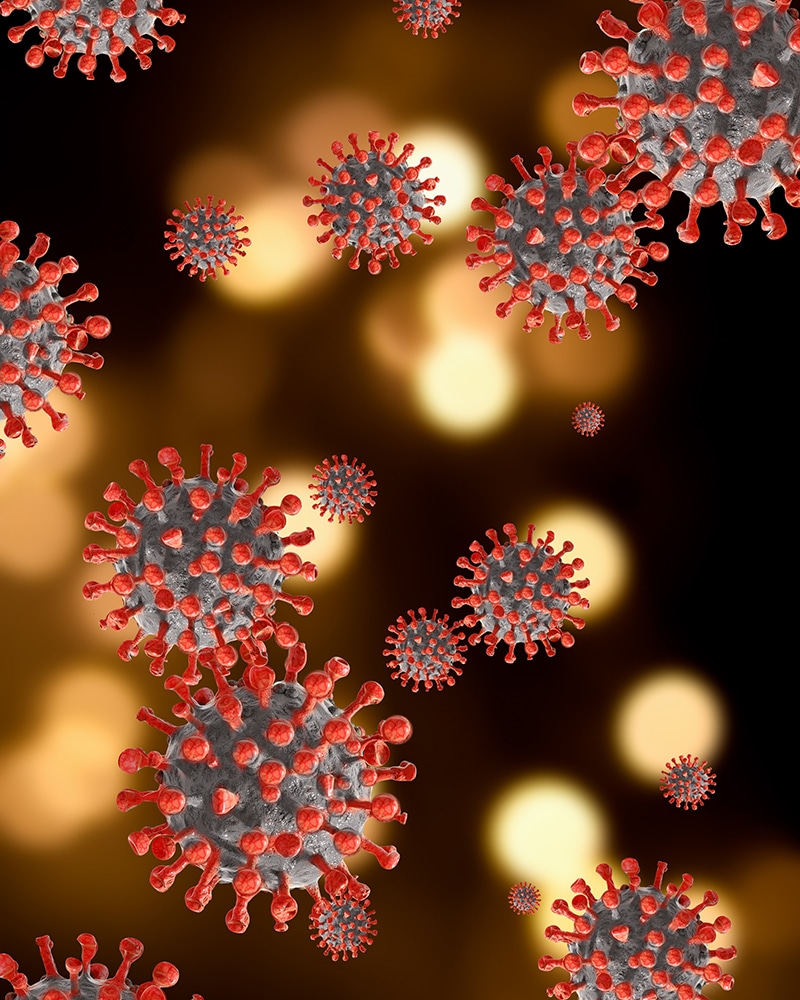
What are the Symptoms of Long COVID?
Click on any hotspot on the human body to learn more about Long COVID symptoms.
- Whole Body
- Brain and Nerves
- Eyes
- Ears
- Smell and Taste
- Neck
- Lungs
- Heart and Blood
- Kidneys
- Hands
- Legs and Feet
- Reproductive Systems
- Digestive Systems
- Skin and Hair
- Muscles and Bones
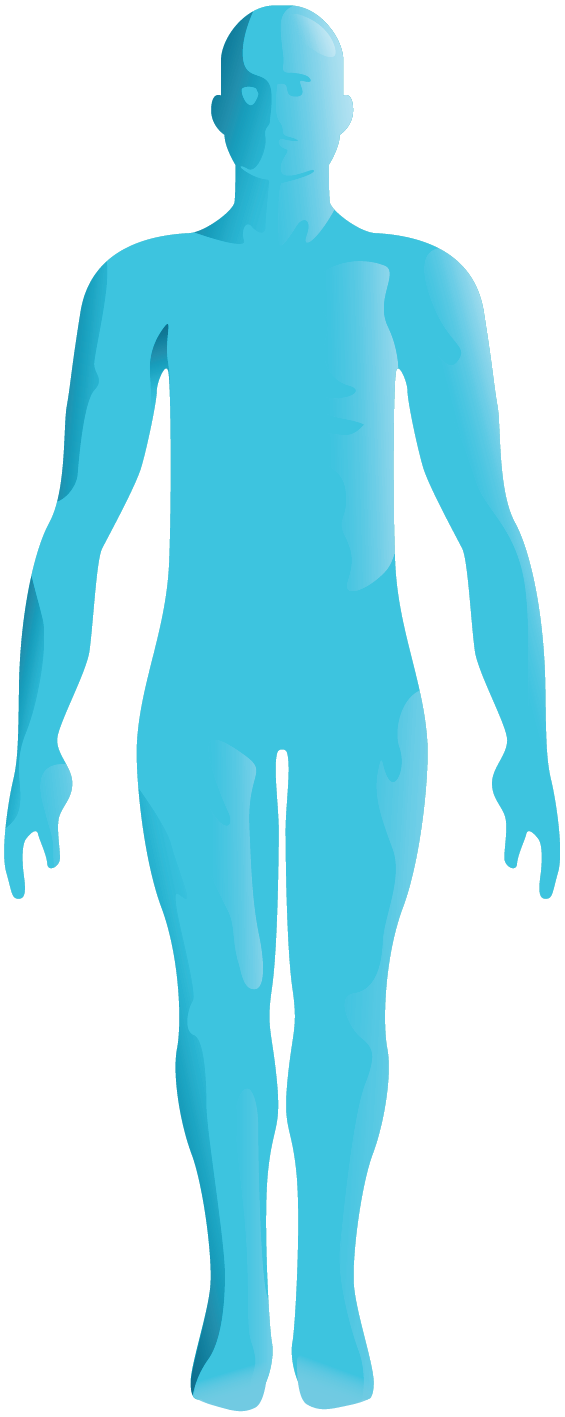
Back
Whole Body
- Tiredness or a lack of energy that interferes with daily life
- Symptoms that get worse after physical or mental activity (post-exertional malaise)
- Abnormal movements
- Fever and chills
- Sleep problems including insomnia, extreme daytime sleepiness, and restless leg syndrome
- Weakness

Back
Eyes
- Changes in vision
- Eye redness
- Yellowish eyes (jaundice, a symptom of liver disease)
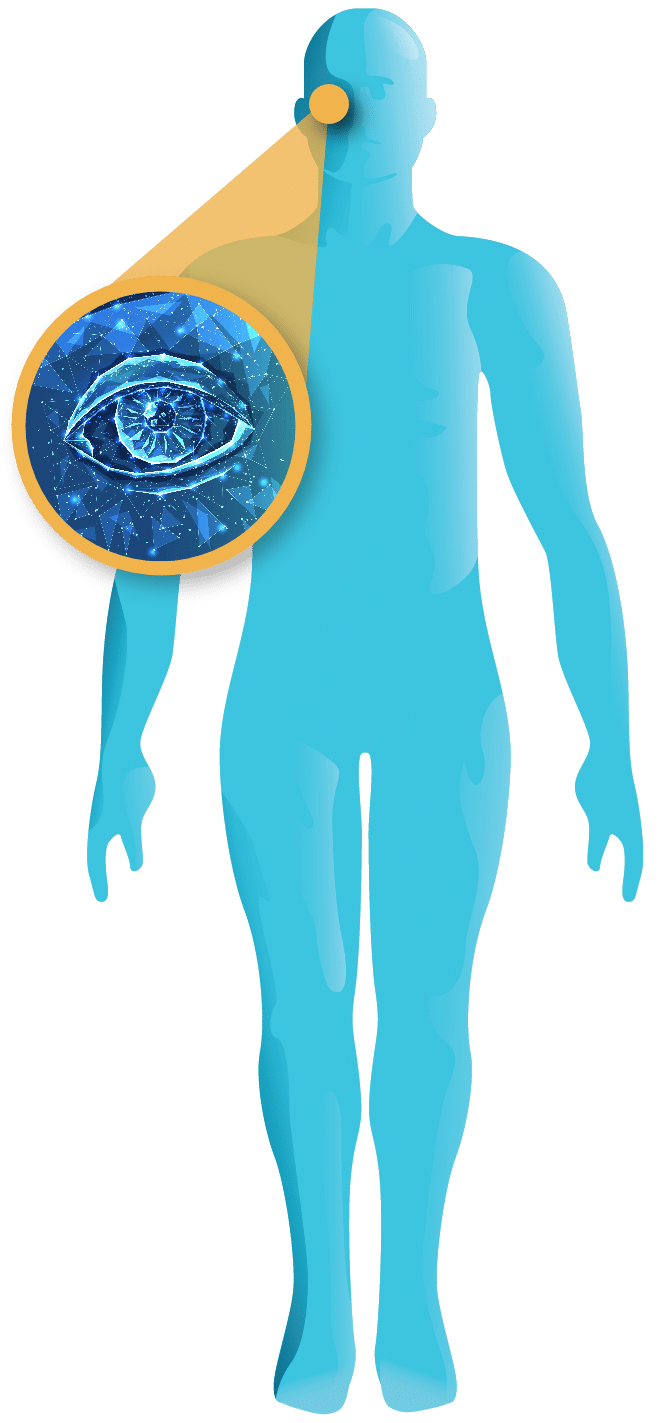
Back
Brain and Nerves
- Brain fog (problems with thinking, concentrating, and remembering)
- Headaches
- Dizziness upon standing
- Mood symptoms (feeling sad, stressed, tense, or angry) that interfere with daily life
- Mental health conditions such as anxiety or depression
- Tingling, numbness, and nerve damage
- Seizures
- Dementia
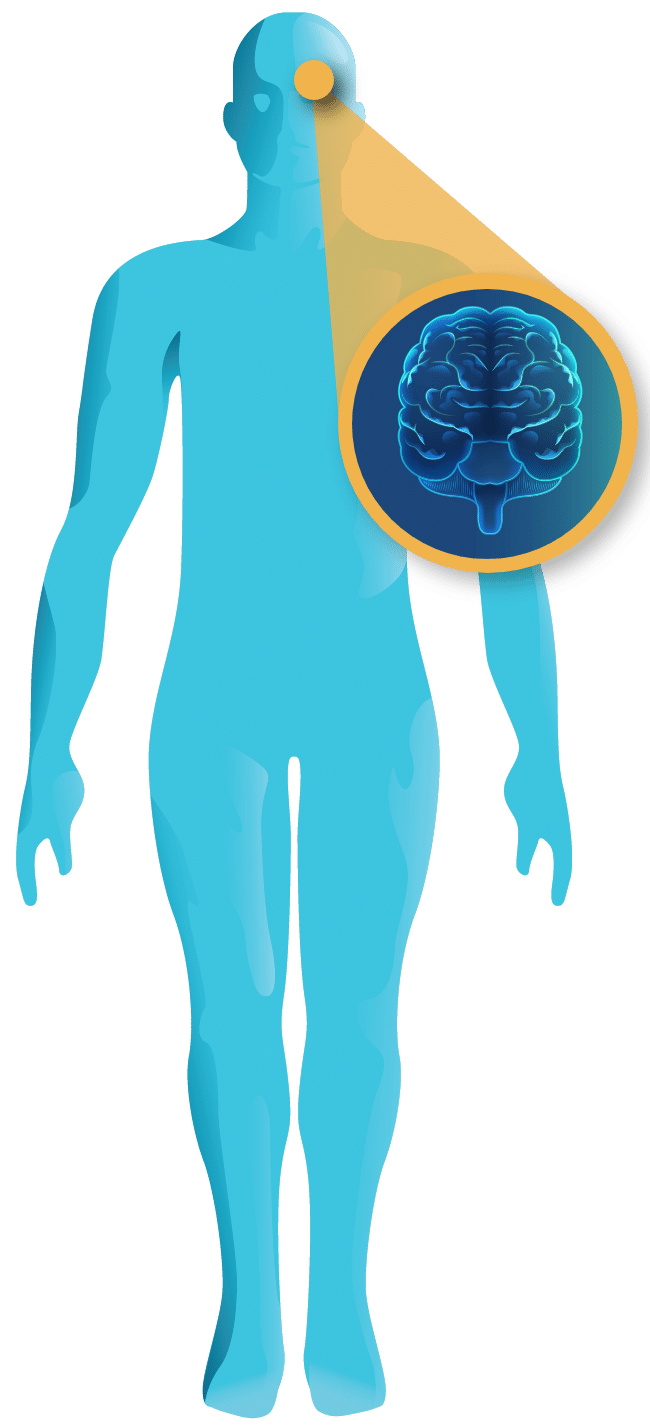
Back
Ears
- Hearing loss
- Ringing in the ears (tinnitus)
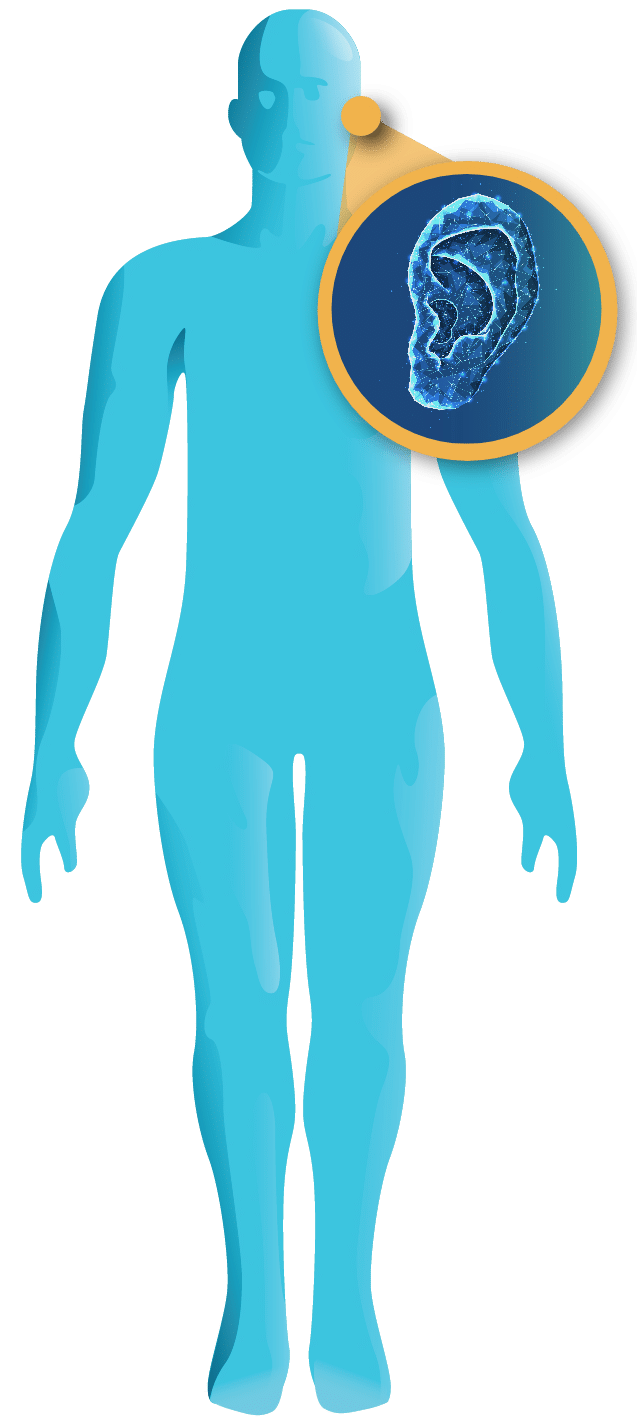
Back
Smell and Taste
- Stuffy nose
- Loss of taste or distorted sense of taste
- Loss of smell or distorted sense of smell
- Loss of appetite
- Increased thirst (a symptom of diabetes triggered by COVID-19)

Back
Neck
- Neck pain that spreads toward the ears
- Swelling of the thyroid gland

Back
Lungs
- Shortness of breath
- Cough
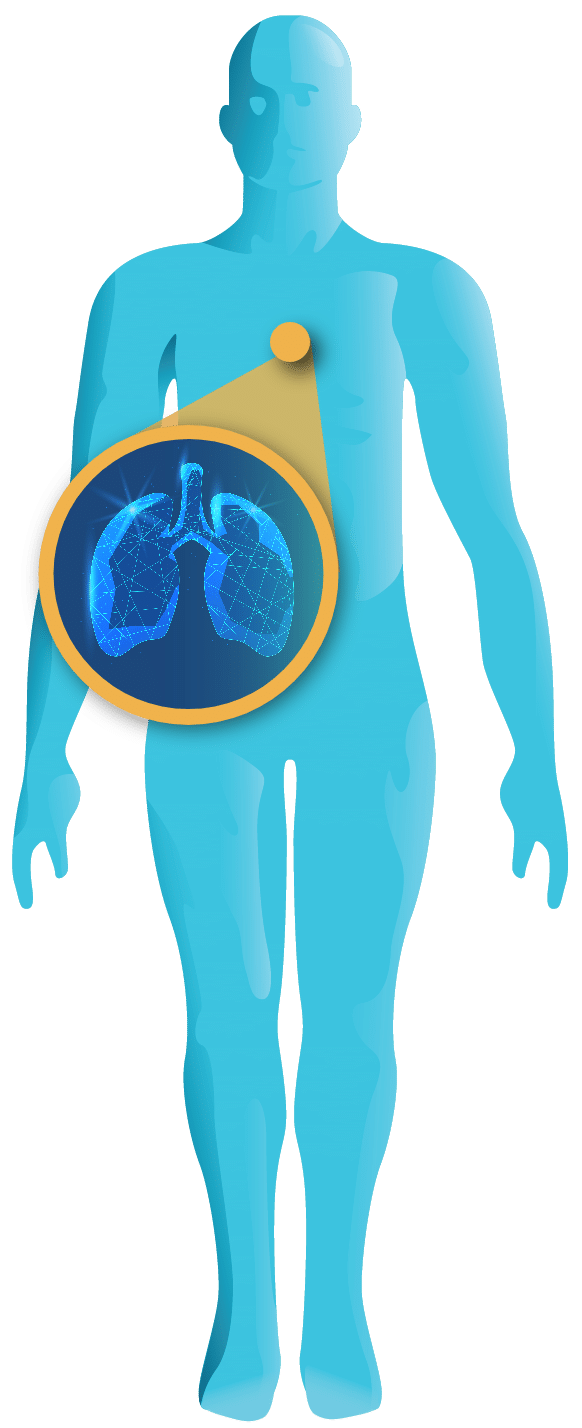
Back
Heart and Blood
- Chest pain
- Rapid or irregular heartbeat
- Fainting
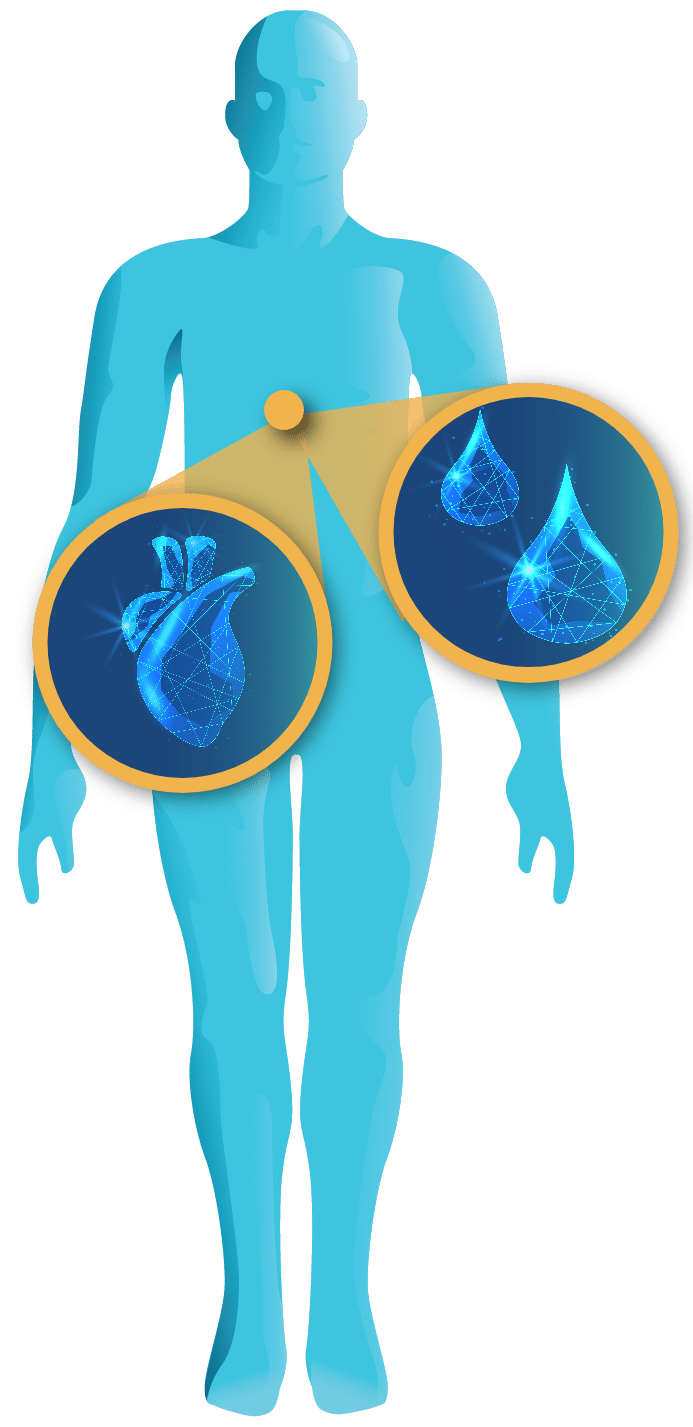
Back
Kidneys
- Pain on the side of the body (symptom of kidney problems)
- Changes in urination

Back
Hands
- Shaking

Back
Legs and Feet
- Swelling in legs or feet
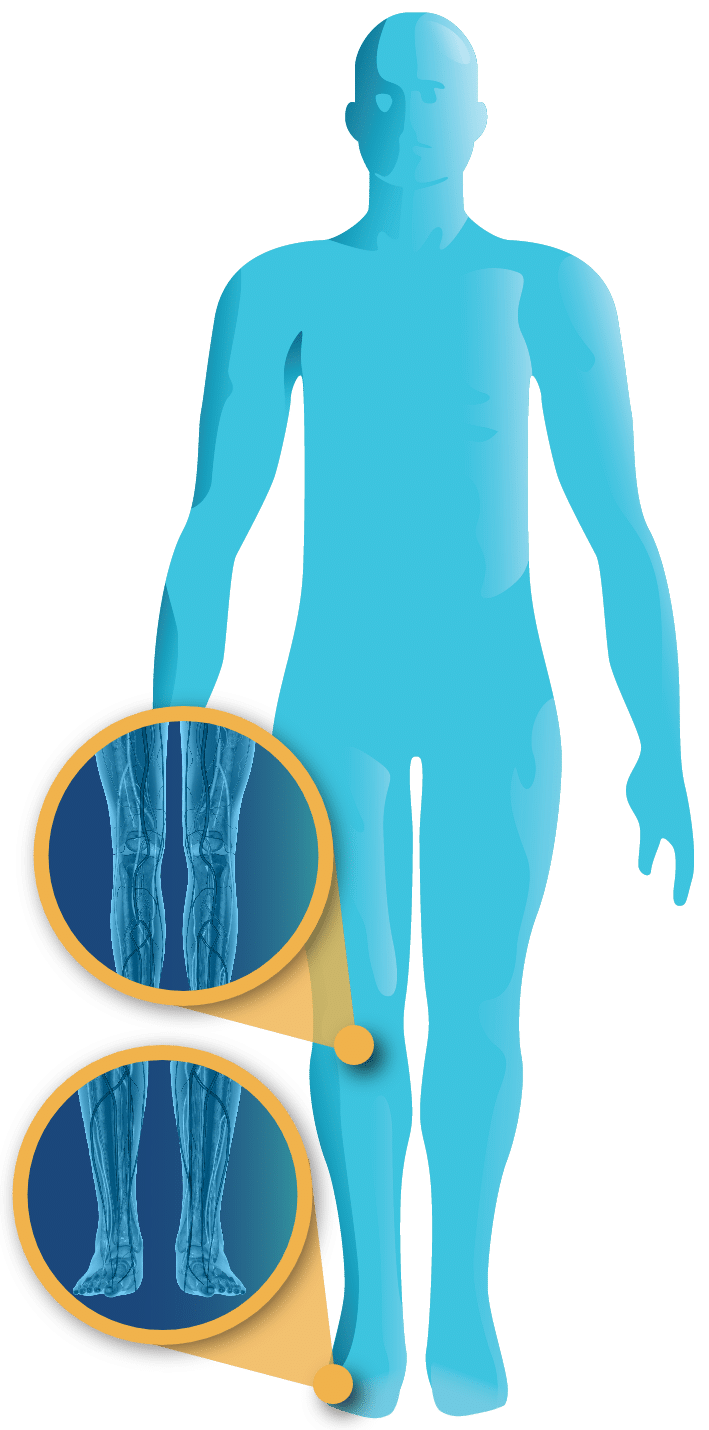
Back
Reproductive Systems
- Erectile dysfunction
- Changes in menstrual cycle
- Short-term reduced male fertility
- Worsening premenstrual symptoms
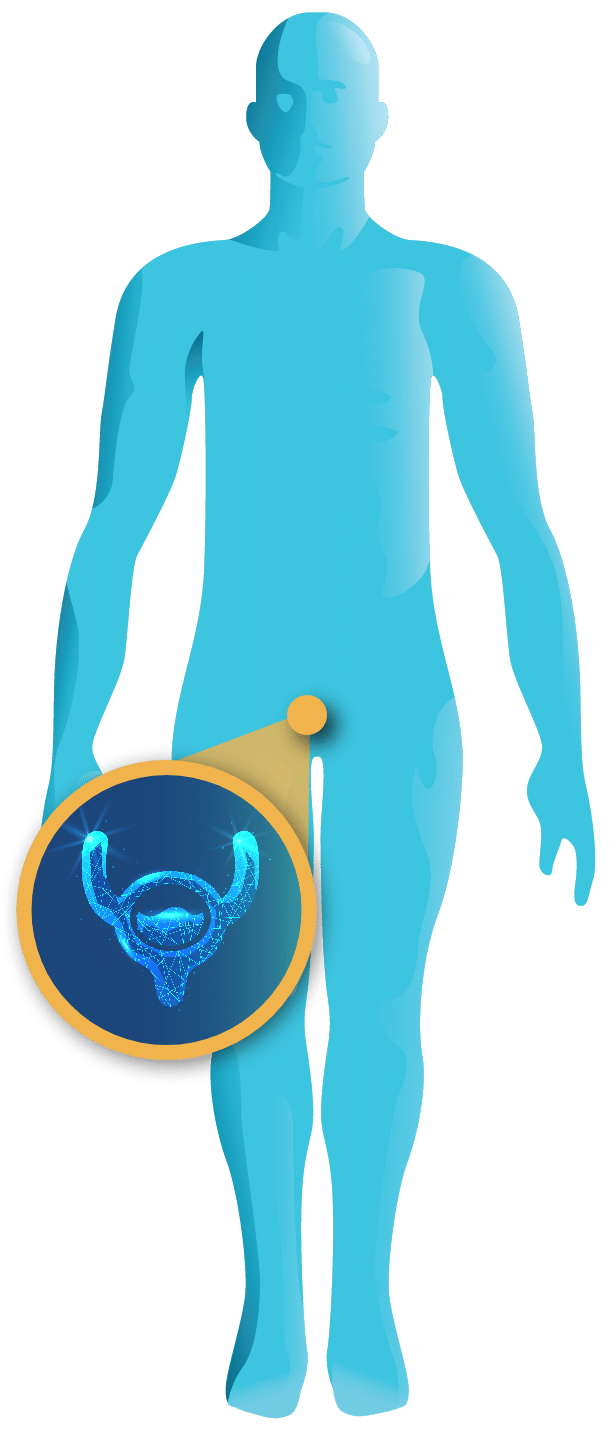
Back
Digestive Systems
- Stomach pain
- Changes in appetite
- Diarrhea
- Constipation
- Heartburn
- Changes in stool color
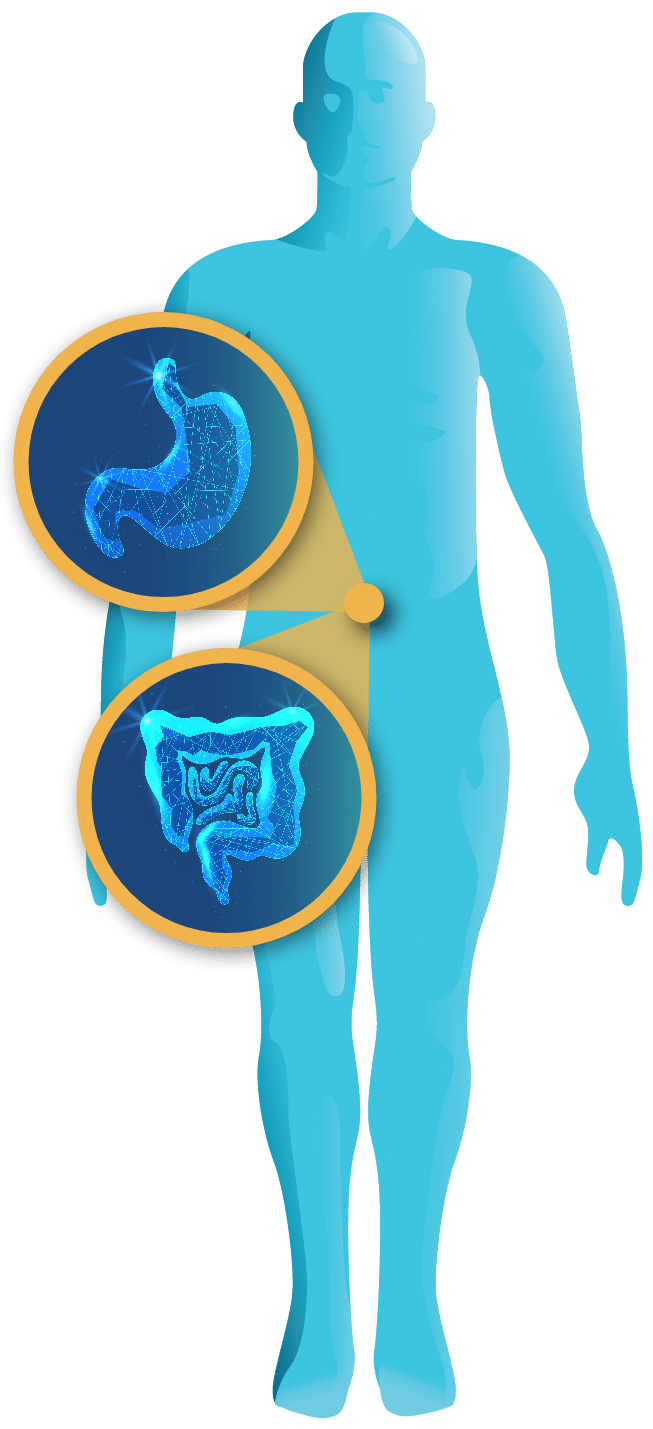
Back
Skin and Hair
- Rashes
- Hair loss
- Yellowish skin (jaundice, a symptom of liver damage)
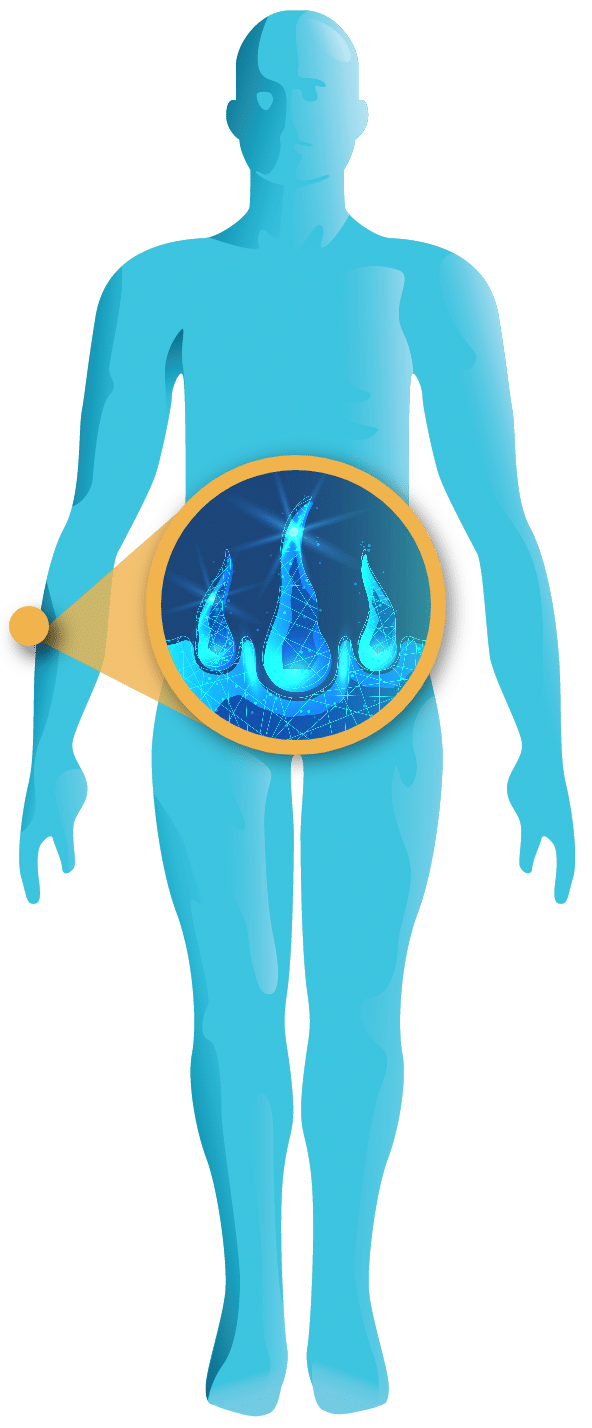
Back
Muscles and Bones
- Muscle aches
- Joint pain
- Reduced mobility
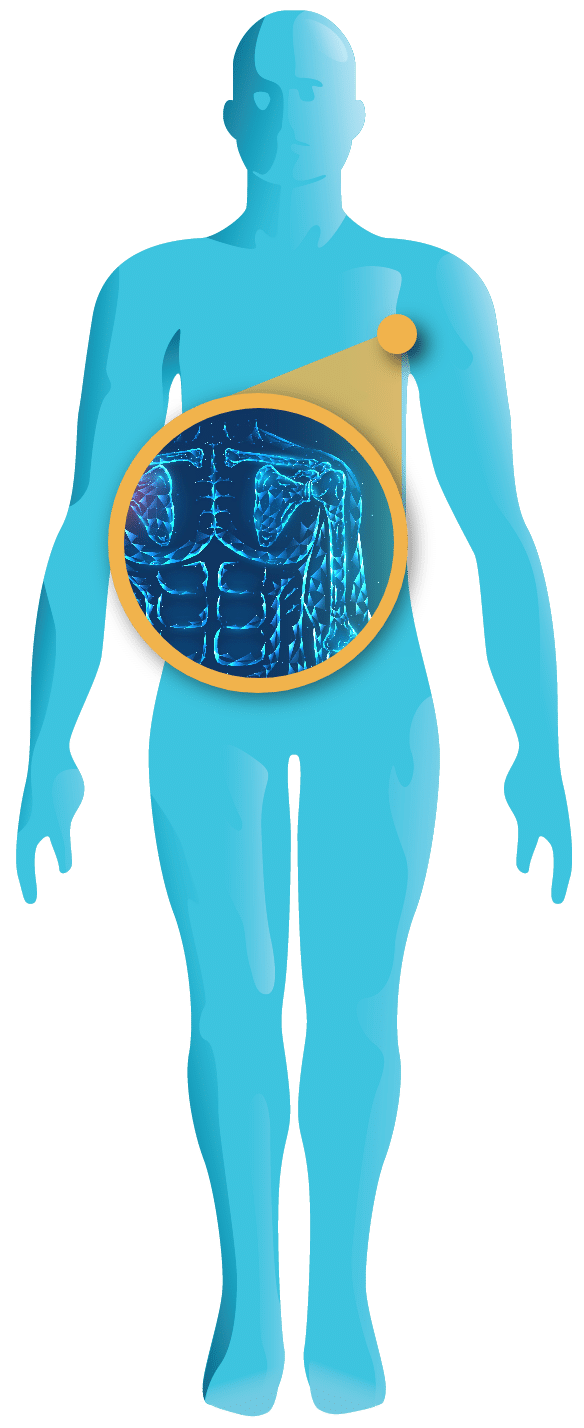
What We Know About Long COVID?
What causes Long COVID?
Scientists don’t know for sure what causes Long COVID, but research is providing some clues. While there is still uncertainty on the exact cause or causes of long covid, there are several candidates in the running. It is likely more than one mechanism involved.
- Dysautonomia/Vagus nerve dysfunction
- Chronic Inflammation – Overactive immune cells may release high levels of inflammatory substances that can injure organs and tissues.
- Autoimmunity – The infection may cause the immune system to start making autoantibodies that attack a person’s own organs and tissues.
- Thrombotic events/clots
- Spike (S protein) toxicity
- Mitochondrial dysfunction
- Gut dysbiosis with low serotonin absorption

Why are some people more likely to get Long COVID / who is at most risk of getting long covid?
Scientists are uncovering risk factors for Long COVID and learning why symptoms vary from person to person. While 203 long covid symptoms have been documented, not everyone will have the same set of symptoms.
Some groups have a higher risk, including:
- People who did not get a COVID-19 vaccine (2 doses were reported to reduce risk by 40%)
- Number of covid-19 infections (each one increases risk by 5%)
- Female sex (2x risk over male)
- Older age (>70 years of age)
- The specific SARS-CoV-2 variant that caused the initial infection alpha & delta >> omnicron
- Higher viral loads during covid
- Having 5 or more symptoms during the 1 week of covid-19 infection
- Preexisting autoimmunity such as Crohn’s disease, ulcerative colitis, rheumatoid arthritis, lupus/SLE, Sjogren’s disease
- Preexisting herpes family virus infection such as CMV or EBV
- Preexisting Lyme disease
- Ehlers-Danlos syndrome (EDS)
- Gut dysbiosis
- Poor mental health – preexisting anxiety or depression
- Preexisting asthma
- Obesity; BMI > 30
- Smokers
- Diabetes mellitus
- Immunosuppressed
- Ischemic heart disease
How can I prevent Long COVID?
The best way to prevent Long COVID is to avoid getting COVID-19. However, metformin has been shown to reduce getting long covid by 41% compared to those not taking it during covid infection.
What can I do if I have Long COVID?
There is no specific treatment for Long COVID yet. There are several treatment strategies such as stellate ganglion block (SGB), vagus nerve stimulation, nicotine patch, supplements, and prescription medications. We can help guide you if you need help, just schedule a consult with us.
Do I have Long Covid?
12 points or higher and you have long covid according to this one study
Symptom | Points |
Anosmia/Parosmia | 8 |
Postexertional malaise | 7 |
Chronic cough | 4 |
Brain fog | 3 |
Thirst | 3 |
Chest pain | 2 |
Palpitations | 2 |
Fatigue | 1 |
Changes in sexual desire or capacity | 1 |
Dizziness | 1 |
Gastrointestinal symptoms (nausea, vomiting, bloating, diarrhea, constipation) | 1 |
Abnormal movements (seizure like activity, tremors) | 1 |
Thaweethai T, Jolley SE, Karlson EW, et al. Development of a definition of postacute sequelae of SARS-CoV-2 infection. JAMA. Published online May 25, 2023. doi:10.1001/jama.2023.8823.
What about biomarkers as predictors for long covid?
96% accuracy that you have long covid if you have all 3.
- significant reductions in cortisol levels (most important)
- abnormal T cell activity
- reactivation of multiple latent viruses (including the Epstein–Barr virus and other herpesviruses)